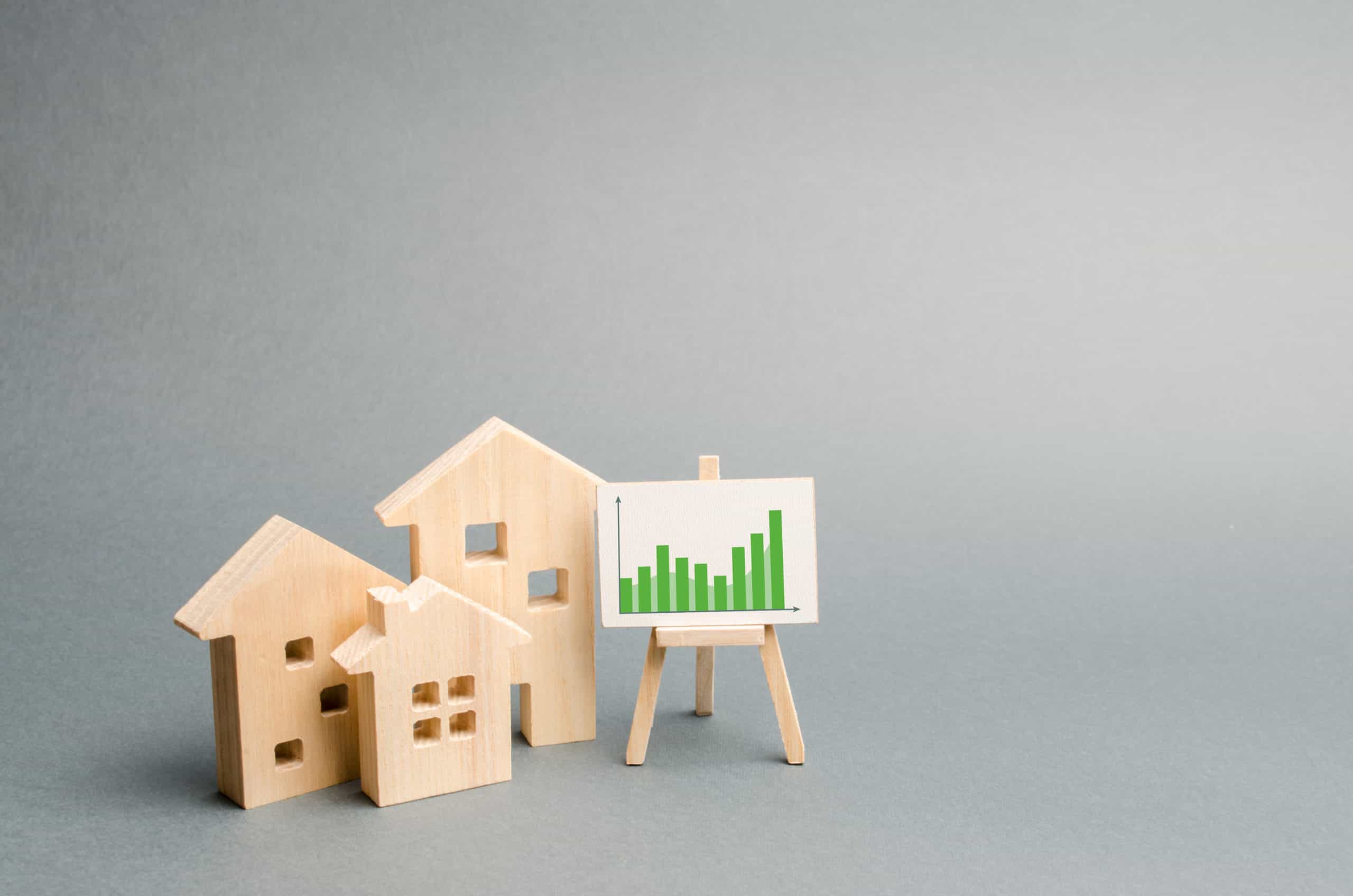
The average house price in January was £251,968 which is a monthly decline of 0.3%.
This month-on-month decline is the biggest monthly fall since April 2020.
Despite the slight decline, quarterly this average price is 1.6% higher, and 5.4% higher on an annual basis.
Russell Galley, managing director at Halifax, said: “The average UK house price slipped by -0.3% in January, the biggest monthly fall since April last year.
“Whilst this pushed the typical property value down to its lowest level since October, at just under £252,000, prices are around £13,000 higher than a year ago.
“There are some early signs that the upturn in the housing market could be running out of steam, with the annual rate of house price inflation cooling to its lowest level since August.
“Industry figures for agreed sales remain well above pre-pandemic levels but new instructions to sell have decreased noticeably, and total stock held by estate agents has risen to its highest level since before the EU referendum in 2016.
“The stamp duty holiday has undoubtedly helped to fuel growing demand amongst households for larger properties.
“However, given the current time to completion across the market, transactions in the early part of 2021 probably don’t include many borrowers who expect to benefit from the stamp duty reprieve.
“How far and how deep any slowdown proves to be is a challenge to predict given the prevailing uncertainty created by the pandemic.
“With swathes of the economy still shuttered, and joblessness continuing to edge higher, on the surface this points to slower market activity and downward price pressures in the near-term.
“That said, we saw the power of homeowners to drive the market in the second half of last year as many people looked to find new properties with greater space, spurred on by increased time spent at home.
“Such structural demand changes, coupled with any further policy interventions by government, could yet sustain underlying market activity for some time to come.”
This index follows the HMRC Monthly property transactions data for UK home which showed that sales rose for the eighth consecutive month in December.
UK seasonally adjusted residential transactions in December 2020 were 129,400, up by 13.1% from November.
Mortgage approvals fell in December for the first time in seven months.
The latest Bank of England figures show the number of mortgages approved to finance house purchases fell in December by 1.8% versus November to 103,381.
The results from Halifax suggest a market cool down, corresponding with the latest RICS Residential Market Survey which showed a further easing in momentum for housing market activity.
Gareth Lewis, commercial director of MT Finance, said: ‘It is natural to see property prices softening now. Since the back end of the first lockdown there has been a flurry of demand for people to transact and take advantage of the stamp duty holiday, and that couldn’t continue indefinitely.
“A £13,000 increase in the average house price over the year is phenomenal given what we have gone through and are still going through.
“In a sense, it is a false high given that nothing in the economy points to why house prices should rise – it is just that people decided they wanted more space and needed to move.
“That huge demand and desire outstripped everything else. We even got to the stage where people were being gazumped.
“At some point, prices need to stabilise.
“This happened in January, following a Christmas break where we forgot about life and work to an extent, before moving into yet another lockdown, which has had an impact on people’s outlook and mentality.
“Activity levels are definitely quieter.
“Is there now a natural desire to hold back and wait until when we come out of lockdown?
“Nobody knows when schools, pubs etc will re-open. Life is on hold and is resulting in an inertia until there is more clarity.”
Guy Harrington, chief executive of Glenhawk, added: “As predicted, the juggernaut that was the 2020 housing market is slowing down.
“However the extent to which the gains of last year are reversed remains to be seen, and we have seen the market defy economic headwinds plenty of times before.
“Whist the end of the stamp duty holiday will undoubtedly hit transaction volumes, a combination of better than expected data from the Bank of England, the government’s Herculean effort to roll out the vaccine and an appetite for more rural living may well underpin robust values throughout 2021.”
Miles Robinson, head of mortgages at Trussle, said: “The continued month-on-month decrease in house prices is likely to reflect the slowdown in demand as we approach the end of the stamp duty holiday.
“With as many as 105,000 property transactions in the balance, it’s becoming clear that a ‘cliff edge’ deadline could cause a big shock to the market if buyers can’t complete in time and start to pull out of their house purchases.
“After many months of unprecedented demand and house price growth, now is the time that we could start to see activity in the market begin to weaken.
“It’s unlikely that those now starting on their home ownership journey will complete before the stamp duty holiday deadline.
“It takes on average 134 days to complete on a property purchase in the UK, so we’d encourage all buyers to use a stamp duty calculator to factor in the additional costs if they miss the 31 March deadline.
“We might start to see those who think they will miss out renegotiate the price of their property down to try and prevent their chain from falling through and maximise the money they can save.
“There has been recent debate about whether a gradual tapering of the scheme would be a more effective way of bringing it to a close, and it’s certainly worth considering if we see growth continue to slow.”



